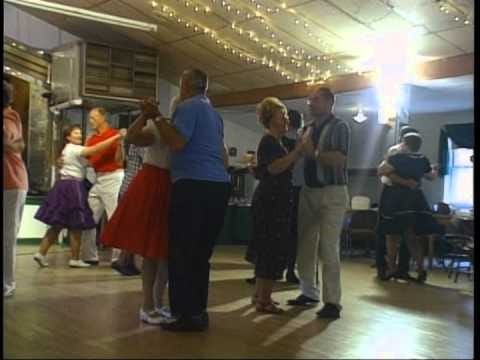Someday we’ll gather in the Lodge and talk about the ethnic origins of the different types of polka music. However, I’m not an ethnomusicologist or an expert of any sorts. I just love polka.
But I love a specific type of polka: Dutchmen style. Dutchmen style is the “oompah” style. It’s mostly a German sound. Slovenian is a little more frilly. Bohemian sounds more generally European and old fashioned. Polish sounds like Cajun music to me. I love it all, but Dutchmen is the stuff that gives me goosebumps.
Dutchmen-style polka gives me a feeling that brings up very vivid images in my mind. It’s bowling alleys, taverns with wood paneling on the walls, electric beer signs with images of water that moves, puffy satin jackets with embroidered names over the heart, fermented sausage snacks and pickled eggs, curls of beer label paper on a lacquered bar. It’s the warm smell of human bodies after they dance and the wax of crackle-glass candles. It’s the warmth of being with people who shout your name in welcome when you walk in the room, like Norm from “Cheers.”
This is the nostalgia that floods my brain when I hear Dutchmen-style polka. Chasing that feeling is why I play this music. This feeling is what drives me to ask people “what is polka culture?” We will explore that question a lot in the Shotski Lodge in the future.
I also play this music because it’s harder to find on the radio than other polka styles. If you like polish polka, you’ll find it. The Polish community does a great job of celebrating their culture. When you search the internet for polka on the radio or streaming online, you’re going to find a lot of polish music. Slovenian is #2 and was more of the style Frankie Yankovic made popular. I believe that these two types of polka are what most people think of when they think of polka.
There is data to support my gut feeling that German-influenced Dutchmen-style needs more airtime. In 2020, two researchers, Bowling Green State University Professor in the Department of Political Science David J. Jackson and Lori Liggett, Senior Lecturer in the School of Media and Communication, published research on a survey of polka DJs. They found that “about 51.2% predominantly play Polish-style polka music, while 10.7% play Slovenian style, 6% play Czech, and 2.4% play German. A significant number of jockeys (29.8%) reported playing "other," and when asked to define that, most stated they play a variety of styles.”
I play mostly Dutchmen style because it needs to be played. I’m deeply inspired by the work of Aaron Schuelke on WRJQ, a 24/7 streaming station that plays almost entirely Dutchmen-style polka. It’s a priceless treasure.
That Bowling Green study had other data that was not surprising, but motivating for me to get on the radio. Jackson and Ligget wrote that the “age of a polka DJ is 55-64 (31%) followed closely by 65-74 (29.8%). Nearly all participants identified as white (94%) and male (91.7%).”
That’s why I’m sort of like a nesting doll of underrepresentation in polka music. I’m a woman. I’m “young.” I play Dutchmen-style polka. I play entirely vinyl records. I’ll write more about how few women there are playing polka music on the radio in the future. But I’m proud to be carrying on a long tradition of playing polka on the radio and introducing this music to a new generation.




